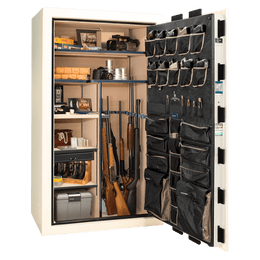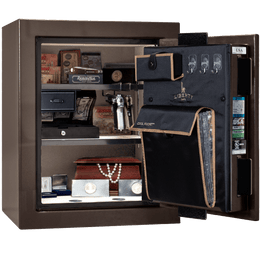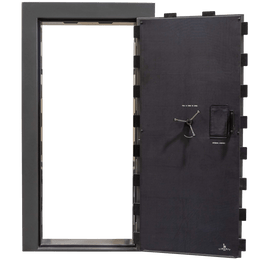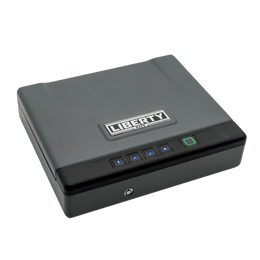Since its inception, the United States of America has recognized the right of the people to keep and bear arms. Despite years of serious challenges to this right by anti-gun local, state, and federal politicians, the Supreme Court of the United States (SCOTUS) recently upheld that law-abiding citizens have a Second Amendment right to keep a gun at home for self-defense and to carry a handgun in public for self-protection (District of Columbia v. Heller, and New York State Rifle & Pistol Association v. Bruen).
Furthermore, people in the United States have been making their own guns for hundreds of years, and gunmaking is deeply rooted in the USA’s tradition and constitutional history. Legal scholars have recognized that the Second Amendment’s guarantee of the right to keep and bear arms would be meaningless unless the government allows individuals to exercise that right—which includes people making their own guns. Local and state ordinances and laws can differ, and what’s legal in some states may not be legal in others. But federally, making your own firearm for your own use is legal.
Note: this does NOT include making “machineguns” or any other Title II or NFA weapons. To make a machine gun, you’ll need a Type 07 FFL (manufacturer license) with a Class 2 Special Occupation Tax, even if you’re making it for your use.
Types of Federal Firearms Licenses (FFLs)
What is an FFL?
An individual who is licensed to engage in the business of manufacturing, importing and/or dealing in firearms. Persons must be licensed by ATF to engage in the business of firearms.
Types of FFLs:
Dealers:
- 01 – Dealer in firearms other than destructive devices.
- 02 – Pawnbroker in firearms other than destructive devices.
- 09 – Dealer in destructive devices.
Manufacturers:
- 06 – Manufacturer of Ammunition for Firearms Other Than Ammunition for Destructive Devices or Armor Piercing Ammunition.
- 07 – Manufacturer of firearms other than destructive devices.
- 10 – Manufacturer of destructive devices, ammunition for destructive devices or armor piercing ammunition.
Importer:
- 08 – Importer of firearms or ammunition for firearms other than destructive devices or ammunition other than armor piercing ammunition.
- 11 – Importer of destructive devices, ammunition for destructive devices or armor piercing ammunition
Other:
- 03 – Collector of curios and relics.
However, on August 24, 2022, under the Biden administration, a new rule (Final Rule 2021R-05F) went into effect regarding Privately Made Firearms (PMF) that changes some things about how these types of homemade guns may be purchased, sold, or transferred.
Let’s review some key points so you can better understand how to stay within the law.
Important note: This article is intended for informational purposes only, and we have made a reasonable attempt at providing accurate information at the time of this writing. However, laws and regulations change, and local and state laws may differ.
Before building, purchasing, or selling any firearm, you must check and conform with all relevant local, state, and federal laws. Neither the author nor Liberty Safe assumes any liability for using or misusing this information.
What is gun building?
Gun building or gunmaking is, simply put, the practice of making a firearm. Making a firearm may include forging, welding, casting, and/or milling processes, or it may involve 3D printing or finishing an “80% complete” frame or receiver that is not legally considered a firearm until the final processes are completed. Also, note that “manufacturing” and “making” a firearm differ in the laws' language. Manufacturing generally refers to commercial production, which requires a manufacturing license.
Of course, to understand whether you’re legally making a firearm, you need to understand the legal definition of "firearm." In the United States, the definition of “firearm” has a history of being somewhat problematic and confusing, but according to the code:
- "The term 'firearm' means (A) any weapon (including a starter gun) which will or is designed to or may readily be converted to expel a projectile by the action of an explosive; (B) the frame or receiver of any such weapon [emphasis added]; (C) any firearm muffler or firearm silencer; or (D) any destructive device. Such term does not include an antique firearm."
An "antique firearm" for the purposes of Federal law is:
- (A) any firearm (including any firearm with a matchlock, flintlock, percussion cap, or similar type of ignition system) manufactured in or before 1898; or
- (B) any replica of any firearm described in subparagraph (A) if such replica—
- (i) is not designed or redesigned for using rimfire or conventional centerfire fixed ammunition, or
- (ii) uses rimfire or conventional centerfire fixed ammunition which is no longer manufactured in the United States and which is not readily available in the ordinary channels of commercial trade; or
- (C) any muzzle loading rifle, muzzle loading shotgun, or muzzle loading pistol, which is designed to use black powder, or a black powder substitute, and which cannot use fixed ammunition. For purposes of this subparagraph, the term “antique firearm” shall not include any weapon which incorporates a firearm frame or receiver, any firearm which is converted into a muzzle-loading weapon, or any muzzle-loading weapon which can be readily converted to fire fixed ammunition by replacing the barrel, bolt, breechblock, or any combination thereof.
So generally, muzzleloaders and other black powder firearms, including replicas or handmade guns in that category, are not legally considered firearms according to Federal law. Local and state regulations differ, and some more restrictive states treat black powder firearms like any other firearm, so be sure to check your local laws.
The laws on building guns
As noted above, the US has a long history of citizens making their own guns. The Gun Control Act of 1968 allows an unlicensed individual (a regular “civilian” that doesn’t hold a Federal Firearms License or FFL) to make a (non-NFA) firearm for personal use, but not for sale or distribution.
However, the law does not explicitly prevent that person from later selling, giving away, or otherwise transferring a homemade firearm to another person as long as the gun was originally intended for personal use and as long as it is legal within the state where you reside.
A gun explicitly made for personal use can be sold or transferred in the same way that a factory-made firearm of that same class can be sold or transferred. However, there are now specific rules regarding “kits” for building firearms, and if the transfer requires the use of an FFL (selling across state lines, for example), there are new rules that the FFL must comply with. We’ll cover those in the “ghost gun laws” section below.
In the US, by federal law, the part of a firearm considered the “receiver” must be serialized (marked with a serial number), if it is manufactured for sale. And, if you make firearms to sell, you need a special license (typically a Type 07 Federal Firearms License; Manufacturer of Firearms other than Destructive Devices).
However, suppose you are making a firearm for your own use and don’t intend to give it away or sell it. In that case, you can legally do so in most states without serializing the receiver and notifying any agency. Again, check your local laws.
TRAINING AID FOR THE DEFINITION OF FRAME OR RECEIVER & IDENTIFICATION OF FIREARMS
Overview of Final Rule 2021R-05F
What are ghost guns?
The term “ghost gun” is a made-up term typically used by anti-gun media and lawmakers to describe a privately made firearm (PMF), basically because it sounds scarier than a “homemade gun.” CBS News says, “Ghost guns are unregistered and untraceable homemade weapons that can be made with a 3D printer or assembled from a kit.”
If you ask one person what constitutes a “ghost gun,” you might get an answer something like “any gun without a serial number” (even though many guns were manufactured commercially without serial numbers before the Gun Control Act of 1968, and these firearms are still perfectly legal to possess and sell according to federal law and are specifically excluded from the new 2022 ruling). Another person might specifically consider “ghost gun” to mean 3D printed or molded polymer, partially finished firearm frames or receivers intended to be finished by the purchaser using a template, tools, jig, or kit.
Ghost gun laws
Biden’s new 2022 “ghost gun” rule partially responds to pressure from anti-gun groups claiming that “ghost guns” have been increasingly used in crimes. The new rule redefines or clarifies what constitutes a firearm receiver or frame, specifies how those parts must be serialized if manufactured for sale and establishes new procedures FFL dealers must follow when selling or transferring privately made firearms.
On a federal level, if you want to make your own firearm for your own use, nothing has changed. It’s still legal now (if it was legal in your jurisdiction before this ruling).
Specific to “ghost guns,” federally, nothing changed regarding purchasing or selling “80%” frames or receivers, UNLESS the seller includes additional items. The new regulation says an 80% complete frame/receiver, when sold including a “build kit,” IS a firearm (and the Bureau of Alcohol, Tobacco, Firearms, and Explosives [ATF] specifies what additional tools, jigs, templates, parts, and accessories constitute a kit in the final ruling). If sold as a kit, the seller must hold an FFL, serialize the frame or receiver according to the new ruling, and transfer it like any other complete firearm is legally transferred in your state.
Can I purchase an 80% frame/receiver and parts kit separately?
So, is it still legal to purchase an unfinished frame or receiver separately from a "kit"? The ATF specifically clarifies that if you separately purchase: 1. an unfinished frame or receiver; and 2. "Components, tools, jigs, etc. from an unrelated company;" you are not violating federal law.
Specifically, the response states, "Under federal law, it’s not unlawful for a person who is not prohibited from possessing firearms to make a non-NFA (National Firearms Act) privately made firearm (PMF) for their own personal use."
If you are buying or selling solely the 80% complete frame/receiver, without the tools, jig, instructions, etc., that make it a kit, it is, by law, not a firearm and not regulated by federal law. Again, adhering to any local or state laws is important, so read up.
Can I sell or give away a completed “ghost gun” or privately made firearm?
As stated earlier, the Gun Control Act of 1968 permits a regular, unlicensed person to make a firearm for his/her personal use as long as it is not intended for sale or distribution. However, the law does not explicitly preclude an unlicensed person from later selling, giving away, or otherwise transferring a homemade firearm to another person as long as it was originally intended for personal use.
If it’s legal in your state to sell or give a firearm to another private individual within your state who is not an otherwise prohibited person without needing to go through an FFL, then you can still do this with a PMF. The new rule says that if the transfer needs to go through an FFL (for sales across state lines or where in-state FFL transfers between individuals are required by state law), the FFL must now mark the PMF with a unique serial number according to the new marking rules (specified in the final ruling), and record the transfer in his/her A&D (acquisitions and dispositions) book before disposition of the firearm.
A gun explicitly made for personal use can legally be sold or transferred in the same way that a factory-made firearm of that same class can be sold or transferred, in compliance with your local and state laws. However, suppose it is learned that you are making and selling multiple PMFs. In that case, you are likely to be prosecuted for manufacturing and/or selling firearms without a license, and the ATF is not known for having a sense of humor. Stay within the intent and the letter of the law, and you won’t have to find out what the inside of a federal penitentiary looks like.
We can’t realistically address all potential FAQs regarding the new rules regarding PMFs, so if you have other questions, please refer to the ATF’s FAQ about the new final rule.
Store your firearms securely with Liberty Safe
Whether firearms in your collection are privately made, commercially manufactured, or a combination of both, keep them secure from theft, unauthorized access, corrosion, and fire in a humidity-controlled, USA-made Liberty safe. Our customers tell us they’re the best gun safes in the world, and we tend to agree.
*Made in the U.S.A. from U.S. and Global Parts.







